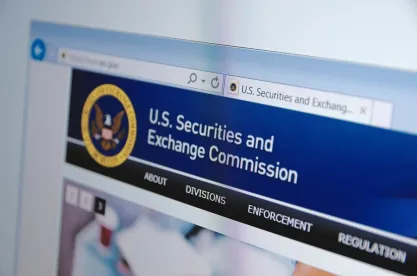On November 24, 2020, the Securities and Exchange Commission (“SEC”) proposed amendments to Rule 701 and Form S-8 (the “Proposals”) under the Securities Act of 1933, as amended (the “Securities Act”). The Proposals are intended to (1) facilitate the ability of companies that are not required to file reports with the SEC to issue securities to compensate certain service providers, and (2) simplify the existing registration processes for compensatory offerings by reporting companies. Simultaneously, the SEC also proposed a temporary rule that would allow non-reporting issuers to issue equity compensation to certain “Platform Workers” who provide services through a technology-based marketplace platform (the “Temporary Proposal”).
Proposals
Background. Generally, under the Securities Act every offer and sale of securities, including issuances for compensatory purposes, must be registered unless an exemption applies. For non-reporting issuers, Rule 701 under the Securities Act provides a limited exemption from registration, and for reporting issuers, Form S-8 is the form of registration statement used for compensatory securities transactions and plans. In July 2018, the SEC requested comments on ways to modernize Rule 701 and Form S-8 to take into account the evolution in the types of compensatory offerings and the composition of the modern workforce. The SEC received many comment letters in response, and the Proposals are based in part on that feedback.
Rule 701 Amendments
The Proposals focus on expanding the availability of the Rule 701 exemption and easing disclosure requirements for reliance on that rule.
General Rule 701(e) Disclosures
Rule 701(e) currently provides, in part, that if the aggregate sales price or amount of securities sold in reliance on Rule 701 during any consecutive 12-month period exceeds $10 million, the issuer must deliver additional disclosures to award recipients within a reasonable period of time before the date of sale in order to maintain the exemption.
-
$10 Million Threshold. The determination of whether the amount of securities sold during a consecutive 12-month period will exceed $10 million can be problematic, with potential compliance concerns arising in the event an issuer did not provide the requisite disclosures but, perhaps due to a valuation increase, ultimately expects it may issue compensatory securities with an aggregate value above the $10 million ceiling in a particular 12-month period. The Proposals would require disclosure only with respect to sales after the $10 million threshold is exceeded and would not require after-the-fact disclosure for sales made under Rule 701 during the 12-month period before the threshold was exceeded.
-
Age and Form of Financial Statements. The Proposals also amend the age and form of the financial statements that must be disclosed to award recipients. Currently, the age of the financial statements must be as of a date that is no more than 180 days before the date of sale of securities in reliance on Rule 701, and foreign private issuers are required to provide financial information on the same schedule as domestic issuers. Under the Proposals, the age requirements would be aligned with those required by Form 1-A, Part F/S, so that financial statements must be available on at least a semi-annual basis and completed within three months after the end of the second and fourth quarters. Additionally, foreign issuers eligible for the exemption from registration provided by Exchange Act Rule 12g3-2(b) would be able to provide financial statements prepared in accordance with home country accounting standards for purposes of Rule 701(e) disclosure without reconciliation to U.S. generally accepted accounting principles (“U.S. GAAP”) if financial statements prepared in accordance with U.S. GAAP or the International Accounting Standards Board are not otherwise available.
-
Alternate Form of Disclosure. The Proposals would permit, as an alternative to the financial statement disclosure discussed above, the use of an Internal Revenue Code Section 409A independent valuation report that is dated no more than six months prior to the sale of securities in reliance on Rule 701. The proposed alternative would apply to all issuers other than foreign private issuers eligible for the Rule 12g3-2(b) exemption. Instead, Rule 12g3-2(b) eligible foreign private issuers may provide an alternative valuation disclosure prepared consistent with the Section 409A rules and regulations applicable to determining the fair market value of stock readily tradeable on an established securities market (i.e. the eligible issuer would simply disclose the fair market value of the stock on the most recent trading day preceding the date of sale).
Disclosure Requirements for Derivative Securities
Rule 701(e)(6) currently provides that if a sale involves a stock option or another derivative security, the issuer must provide a disclosure within a reasonable period of time before the date of exercise or conversion. Under the Proposals, if the sale is of a stock option or other derivative security that involves a decision by the award recipient to exercise or convert, the issuer would continue to be required to deliver disclosure within a reasonable period before the date of exercise or conversion. If the sale is of a derivative security not involving a decision by the award recipient to exercise or convert, the issuer generally would continue to be required to deliver disclosure within a reasonable period of time before the date the derivative security is granted; if the grant is to a new hire, the disclosure would be considered delivered within a reasonable period of time before the date of sale if it is provided no later than 14 calendar days after the date the person begins employment.
Disclosure Requirements Following Business Combination Transactions
The Proposals also add some clarity on the application of Rule 701 to entities involved in a business combination. Under the Proposals, as long as the acquired entity complied with Rule 701 at the time it originally granted the derivative securities, the exercise or conversion of those derivative securities that are assumed by the acquiring issuer would be exempt from registration, subject to the acquiring issuer’s compliance, where applicable, with Rule 701(e). Similarly, if the acquired entity would have been required to provide Rule 701(e) disclosure upon exercise or conversion of its derivative securities, the acquiring issuer that assumes those derivative securities would assume the obligation to provide that disclosure upon their exercise or conversion. Finally, in determining whether the amount of securities the acquiring issuer sold under Rule 701 during any consecutive 12-month period exceeds $10 million, the acquiring issuer would consider only the securities that it sold in reliance on Rule 701 during that period and would not be required to include any securities sold by the acquired entity during the same 12-month period.
Increase of Regulatory Cap on Amount of Securities That May Be Sold
As currently in effect, the amount of securities that may be sold in reliance on Rule 701 during any consecutive 12-month period is limited to the greatest of:
-
$1 million;
-
15% of the total assets of the issuer, measured at the issuer’s most recent balance sheet date; or
-
15% of the outstanding amount of the class of securities being offered and sold in reliance on the rule, measured at the issuer’s most recent balance sheet date.
The Proposals would increase the dollar cap from $1 million to $2 million and raise the asset cap from 15% to 25%. The third alternative cap, based on the outstanding amount of the class of securities being offered and sold, would remain unchanged. The Proposals also include some changes to the manner in which compliance with the above requirements is calculated in the event of a business combination transaction.
Expansion of Eligibility for Participation
Finally, the Proposals would expand the application of, and eligibility requirements under Rule 701 and Form S-8 as outlined below:
-
Consultants and Advisors. As currently in effect, the Rule 701 exemption and Form S-8 extend only to compensatory issuances to consultants and advisors who are “natural persons.” In other words, an issuer cannot rely on Rule 701 or utilize Form S-8 for issuances of compensatory securities to an entity providing consulting or advisory services to it. The Proposals would expand eligibility to receive equity compensation exempt from registration under Rule 701 to entity consultants and advisors, or to utilize Form S-8 to register awards to such persons, provided the entity receiving the award meets the following conditions:
-
Substantially all of the activities of the entity involve the performance of services; and
-
Substantially all of the ownership interests in the entity are held directly by:
-
No more than 25 natural persons, of whom at least 50% perform such services for the issuer through the entity;
-
The estate of a natural person specified above; and
-
Any natural person who acquired ownership interests in the entity by reason of the death of a natural person specified above.
-
-
Former Employees. Rule 701 currently exempts offers and sales to former employees, directors, general partners, trustees, officers, or consultants and advisors only if such persons were employed by or providing services to the issuer at the time the securities were offered. The Proposals would expand eligibility under Rule 701 and Form S-8 to former employees to specified post-termination grants and to former employees of acquired entities.
-
Employees of Subsidiaries. Finally, the Proposals would amend Rule 701(c) by substituting the term “subsidiaries” for “majority-owned subsidiaries.” The proposed amendment would make the exemption available for offers and sales of securities under a written compensatory benefit plan.
Form S-8 Amendments
The Proposals include various proposed amendments to Form S-8 to, including those described below.
Addition of Plans and Securities or Classes of Securities to Form S-8.
Several of the Proposals are intended to clarify and simplify the process by which issuers may register offerings under multiple compensatory plans on a single Form S-8 and/or add shares or plans to an existing Form S-8.
-
Addition of Plans to Form S-8. The Proposals would permit issuers to add additional plans to an existing and effective Form S-8 by filing an automatically effective post-effective amendment to such Form S-8, rather than requiring the filing of a wholly new registration statement. This would facilitate the use by an issuer of a single Form S-8 for all of its employee benefit plans that involve equity grants, which could provide greater certainty, simplicity and flexibility for companies with multiple plans.
-
Additional Securities to Form S-8. The Proposals would permit an issuer to add securities or classes of securities by post-effective amendment to an existing Form S-8.
-
Securities Allocation Among Incentive Plans. Under the Proposals, an issuer would be permitted to use a single Form S-8 to register multiple incentive plans, but would not need to assign or allocate the securities registered in the Form S-8 to a specific plan. This would have the effect of permitting an issuer to create a pool of registered shares that could be issued interchangeably under its various incentive plans, which could simplify “share counting” issues encountered by many issuers.
Fee Calculation and Fee Payments on Form S-8 for Defined Contribution Plans
Certain of the proposed amendments impacting Form S-8 are intended to ease potential challenges for issuers with respect to timing and calculation of registration fees for offerings of securities pursuant to defined contribution plans. For example, proposed amendments to Securities Act Rule 457 would permit registration of an indeterminate number of securities to be sold under the issuer’s defined contribution plans. Within 90 days after the end of the issuer’s fiscal year, the issuer would be required to file a post-effective amendment and pay the registration fee for such fiscal year based on the aggregate offering price of all the securities sold during that year. The proposed rule would impact all newly filed registration statements on Form S-8 for offerings pursuant to defined contribution plans but would not affect the amount of fees owed by issuers for previously registered defined contribution plans.
Eligible Recipients
As noted above, the Proposals address the use of both Rule 701 and Form S-8 for offerings to entity consultants and advisors, as well as former employees and would permit:
-
The use of Form S-8 in connection with the offer and sale of securities to “entity” consultants and advisors that meet the same criteria under Rule 701 identified above.
- The use of Form S-8 in connection with the offer and sale of securities to former employees under the circumstances identified above.
Platform Workers Proposal (GIG ECONOMY)
The proposed Rule 701(h) addresses the various non-traditional work arrangements in the expanding “gig economy.” There is no general consensus on the definition/scope of the gig economy, or its various constituents. However, many of the services offered in a “gig economy” occur in four categories: (1) transportation (Uber/Lyft), (2) non-transport work (includes services such as dog walking and home repair), (3) the selling of goods (social media influencers), and (4) leasing.
Under the proposed definition of “platform worker,” eligible workers would be those persons unaffiliated with the issuer who meet two conditions.
-
First, the worker must provide bona fide services through or by means of the issuer’s internet-based or other widespread, technology-based marketplace platform or system (“platform”). Workers providing services to third-party end-users would qualify, as long as the issuer benefits from such services (e.g., by receiving a fee for the worker’s use of the platform or a percentage of the compensation received from the end-user for the worker’s services).
-
Second, the services must be provided pursuant to a written contract or agreement between the issuer and the platform worker and must be provided through a platform-based marketplace (or other widespread, technology-based marketplace platform or system) that the issuer operates and controls.
The proposed rules provide that a platform worker may be an entity as long as substantially all of its activities involve the performance of bona fide services that meet the requirements of proposed Rule 701(h), and the ownership interest of the entity is wholly and directly held by the natural person performing the services pursuant to the proposed rule.
Under the proposed change, an issuer would be able to use the Rule 701 exemption to offer and sell its securities on a compensatory basis to platform workers who, (1) pursuant to a written contract or agreement, (2) provides bona fide services by means of an internet based platform or other widespread, technology-based marketplace platform or system provided by the issuer, if:
-
The issuer operates and controls the platform, as demonstrated by its ability to provide access to the platform, to establish the principal terms of service for using the platform and terms and conditions by which the platform worker receives payment for the services provided through the platform, and to accept and remove platform workers participating in the platform;
-
The issuance of securities to participating platform workers is pursuant to a compensatory arrangement, as evidenced by a written compensation plan, contract, or agreement, and is not for services that are in connection with the offer or sale of securities in a capital raising transaction, or services that directly or indirectly promote or maintain a market for the issuer’s securities;
-
No more than 15 percent of the value of compensation received by a participating worker from the issuer for services provided by means of the platform during a 12-month period, and no more than $75,000 of such compensation received from the issuer during a 36-month period, may consist of securities, with such value determined at the time the securities are granted;
-
The amount and terms of any securities issued to a platform worker may not be subject to individual bargaining or the worker’s ability to elect between payment in securities or cash; and
-
The issuer must take reasonable steps to prohibit the transfer of the securities issued to a platform worker pursuant to this exemption, other than a transfer to the issuer or by operation of law.
The Temporary Proposal requires companies that sell securities to platform workers to furnish certain information to the SEC at six-month intervals to help the SEC determine whether the rule changes should expire, be extended or be made permanent at the end of the five-year period.
The Temporary Proposal would expand the coverage of Rule 701 and Form S-8 on a temporary, trial basis. These proposed amendments would expire, absent further action by the SEC, five years from the date of their effectiveness.
Reporting issuers would be permitted to make registered securities offerings to platform workers using Form S-8, subject to the conditions described above, other than the proposed restriction on transfer.
The SEC is soliciting comments on the Proposals and the Temporary Proposal for a period of 60 days after their respective publication in the Federal Register.









 />i
/>i

